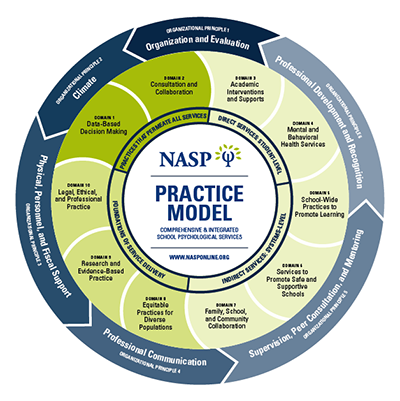Main Content
The Educational Specialist (EdS) degree program in School Psychology is designed for those interested in pursuing a career as a school psychologist.
An Educational Specialist degree is a graduate degree that is more advanced than a master’s degree. It includes two years of coursework and practicum and one year of school-based internship.
This program prepares reflective science-practitioners and leaders who value and work for the empowerment of youth, families, educators, and school communities. Courses emphasize multi-tiered systems of prevention and intervention that holistically promote equity; social, emotional, and behavioral wellness; academic success; and collaborative partnerships. Successful graduates from this program meet the requirements for initial certification (Educational Staff Associate) as a school psychologist in the state of Washington.
School of Education Receives $4.8 Million Federal Grant to Support School Psychology!
A $4.8 million grant from the U.S. Department of Education will enable UW Tacoma’s EdS in School Psychology program to enhance mental health services in local schools. The funding supports graduate students, strengthens partnerships with school districts, and improves access to impactful fieldwork and internships.
Inspired by community-based research, the grant fosters collaboration with families, students, and educators to address the youth mental health crisis. It also funds student research assistantships and advances culturally responsive approaches to mental health support.
This program was reviewed by the National Association of School Psychologists (NASP) and was approved for Candidacy (July 1, 2021 - September 15, 2024).
In their review of our application, the NASP committee noted several strengths of this program, including our:
- strong core of experienced faculty who are active in the profession
- focus on equity and diversity
- emphasis on school-wide practices to support learning and multi-tiered systems
- coherence in the curriculum and connections to our field-based experiences
- input from community practitioners in program development
Click Here to Learn more about Candidacy
Program Annual Report and Student Outcomes Data
Why School Psychology?
School psychologists provide direct and indirect psychological, behavioral, and academic support to students and their families. They use their training and skills to collaborate with families, educators, and mental health professionals within school systems to provide comprehensive and appropriate support to students. School psychologists are often seen as leaders within their schools because of their wealth of experience and range of services offered.
Click Here to see what the National Association of School Psychologists (NASP) has to say about the job of a school psychologist.
Graduates of EdS programs in School Psychology typically find employment in PreK-12 settings, but may also work in universities, private or charter schools, and mental health settings. The need for school psychology programs and school psychologists is substantial and predicted to increase at both the national and regional level. The occupation of School Psychologist was rated as #2 on the Best Social Services Jobs in 2020 list from the U.S. News & World Report.
Why get your EdS from UW Tacoma School of Education?

Best College Reviews included UW Tacoma on a list of the 50 most diverse colleges in the nation. The EdS in School Psychology program is housed within the strong existing equity framework of the School of Education. The EdS program develops school psychologists who value diversity and facilitate the empowerment of students, teachers, colleagues, and families at all levels of service delivery. This program is built on a progressive framework of systems of prevention, equity, and mental health:
- Explicit foci in the areas of anti-racism, culturally relevant practice, and equity as core values of the program.
- Program built from current NASP standards (March, 2020)
- Prepares school psychologists for an expanded, contemporary role e.g., equity-centered SEL, systemic change, reflective practices, empowering P-12 students & families, mutually beneficial partnerships
This program is designed for students who are working part-time. Most courses are offered in the evenings, 4:30-7:00pm. Students are in classes four days a week. The program includes majority in-person with infrequent hybrid and remote courses.
UW Paw'd Defiance: Dismantling Systems of Oppression
UW Tacoma Professor Laura Feuerborn joins us about race, equity and K-12 education. Feuerborn researches social emotional learning. This model focuses on a student's individual needs, feelings and emotions while shifting away from a more punitive approach to school discipline which has historically lead to disproportionally higher rates of suspension and explosions for BIPOC students. Feuerborn also discusses the new Education Specialist in School Psychology program at UW Tacoma and how it's training the next generation of school psychologists to be more equity-minded.
